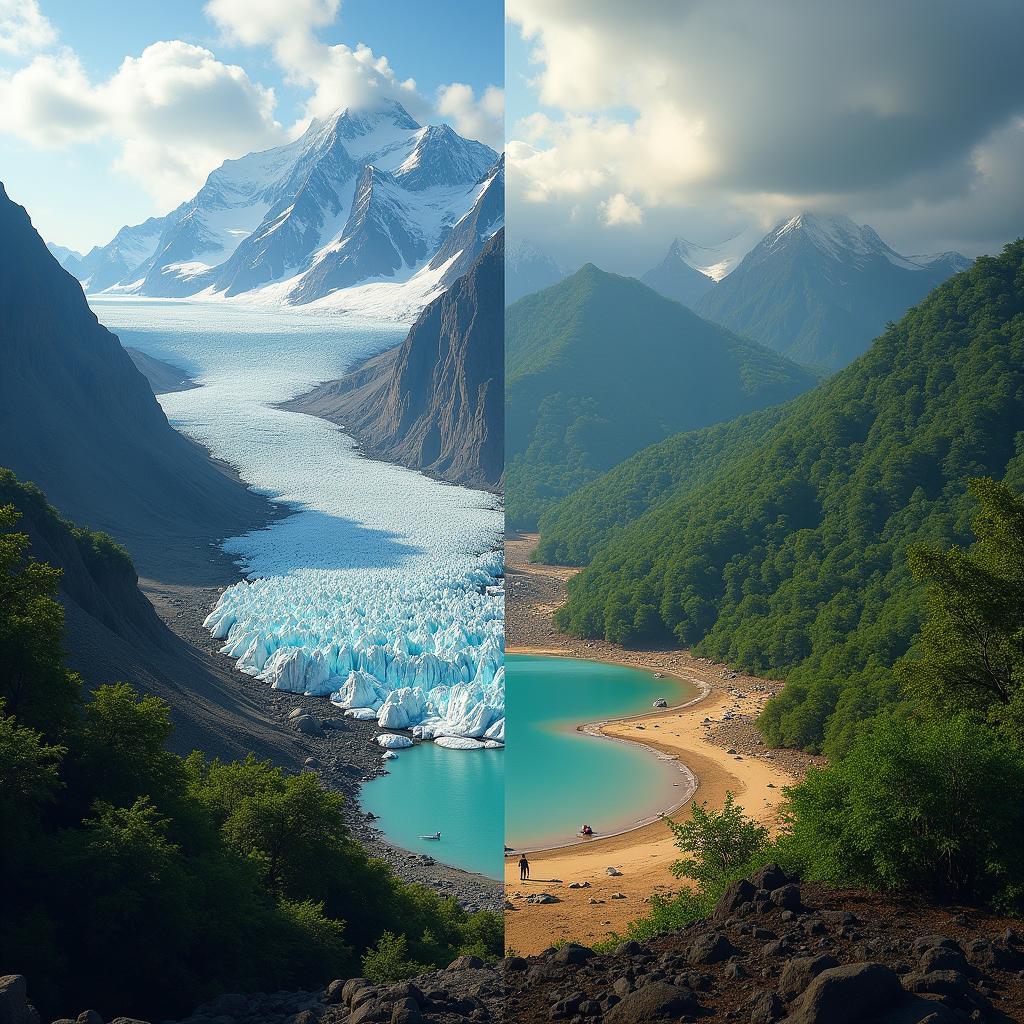Climate change and its impact on biodiversity has become an increasingly common topic in IELTS Writing Task 2. According to recent analysis of past exams, the effects of climate change on biodiversity appears in roughly 15% of environment-related questions. Let’s examine a recent task and analyze model responses across different band scores.
Task Analysis
Some people believe that climate change is the greatest threat to Earth’s biodiversity, while others think human activities like deforestation and pollution are more harmful. Discuss both views and give your opinion.
This question requires candidates to:
- Compare two perspectives on threats to biodiversity
- Evaluate the impact of climate change versus direct human activities
- Present and justify a personal viewpoint

Band 8-9 Model Essay
The debate over whether impact of climate change on biodiversity or direct human interventions pose a greater threat to species diversity is complex and multifaceted. While both factors significantly endanger Earth’s ecosystems, I believe climate change presents the most severe long-term challenge.
Those who emphasize human activities’ direct impact argue that deforestation and pollution cause immediate and visible damage. For instance, clearing rainforests for agriculture instantly destroys habitats and fragments ecosystems, while industrial pollution can rapidly contaminate water bodies and soil, leading to immediate species deaths. These effects are tangible and measurable in real-time, making them appear more threatening.
However, the effects of global warming on ocean ecosystems and other biomes are arguably more devastating in scope. Climate change creates a cascade of effects that destabilize entire ecosystems simultaneously. Rising temperatures alter breeding patterns, disrupt food chains, and force species migrations. Moreover, ocean acidification threatens marine biodiversity on an unprecedented scale, while extreme weather events increasingly destroy critical habitats.
In my view, while both threats are serious, climate change poses the greater danger because its effects are more pervasive and harder to reverse. Unlike localized deforestation which can potentially be remedied through reforestation, climate change’s global impact creates systemic changes that may persist for centuries. Furthermore, it exacerbates existing environmental pressures, making ecosystems more vulnerable to human activities.
Band 6-7 Model Essay
The destruction of Earth’s biodiversity is caused by many factors. Some people think climate change is the biggest problem, while others believe human activities like cutting down forests and causing pollution are worse. I will discuss both sides and give my opinion.
On one hand, climate change is very dangerous for biodiversity. When temperatures rise, many animals cannot survive in their normal habitats. For example, polar bears are struggling because ice is melting, and coral reefs are dying because oceans are getting warmer. Also, unusual weather patterns affect plant growth and animal breeding seasons.
However, human activities also cause serious damage. When people cut down forests, many animals lose their homes immediately. Industrial pollution can kill fish and other water creatures quickly. These problems are easy to see and understand because they happen right in front of us.
In my opinion, The effects of climate change on biodiversity are more serious because they affect the whole planet and are very difficult to stop. While we can plant new trees to replace forests, we cannot easily fix the climate once it changes. Therefore, I think climate change is the bigger threat to Earth’s biodiversity.
Key Vocabulary
- Biodiversity (n) /ˌbaɪəʊdaɪˈvɜːsəti/ – the variety of plant and animal life in a particular habitat
- Ecosystem (n) /ˈiːkəʊˌsɪstəm/ – a biological community of interacting organisms
- Pervasive (adj) /pəˈveɪsɪv/ – spreading widely throughout an area or group
- Cascade (n) /kæˈskeɪd/ – a succession of stages or processes
- Exacerbate (v) /ɪɡˈzæsəbeɪt/ – make worse
- Acidification (n) /əˌsɪdɪfɪˈkeɪʃn/ – the process of becoming acidic
- Fragmentation (n) /ˌfræɡmənˈteɪʃn/ – the process of breaking into separate parts
Conclusion
To practice your writing skills on similar topics, consider these potential questions:
- Compare the effects of climate change on marine versus terrestrial ecosystems
- Discuss solutions to protect biodiversity from climate change
- Evaluate the effectiveness of current conservation efforts
Share your practice essays in the comments section for feedback and improvement suggestions.